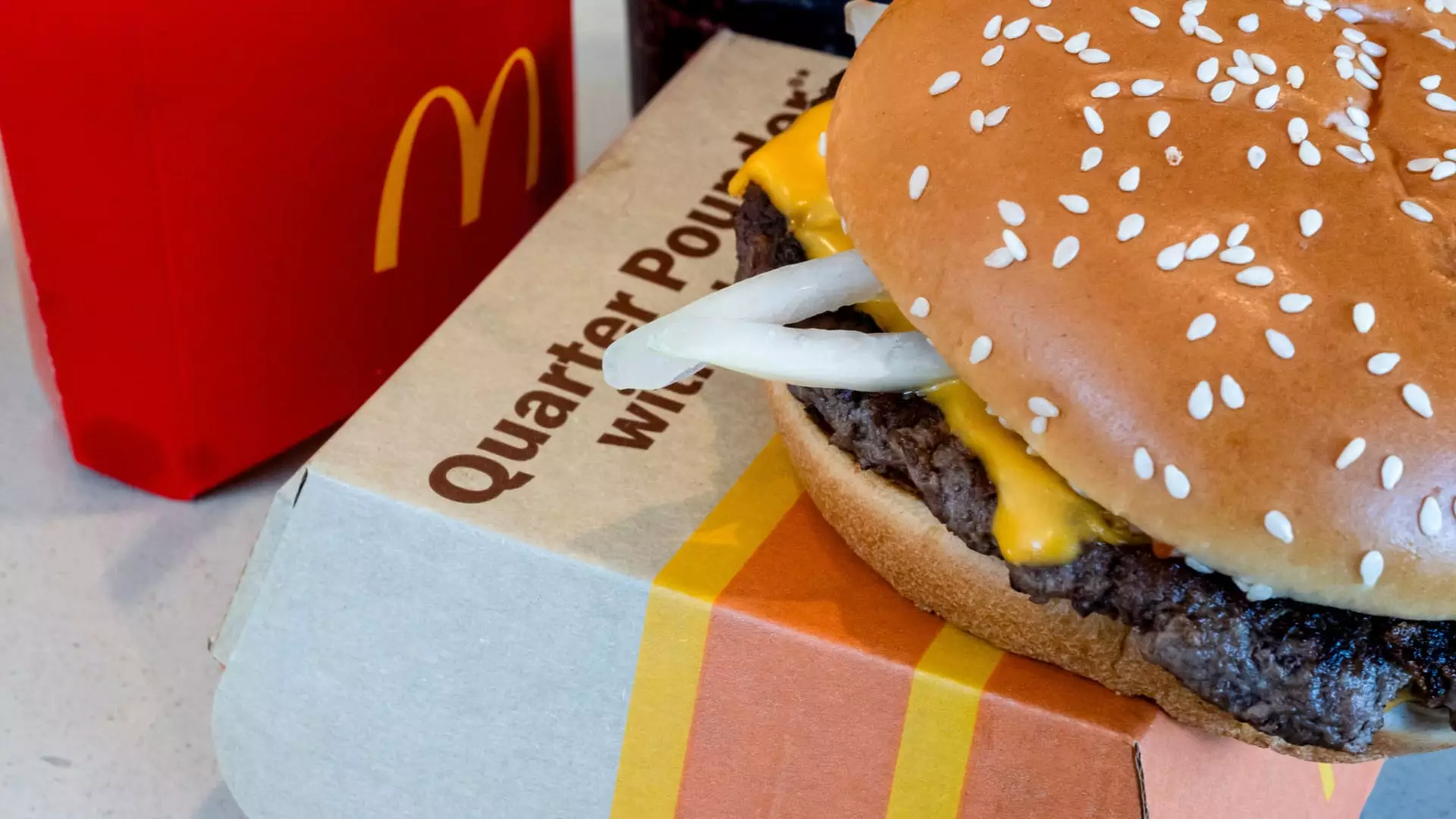The ongoing E. coli outbreak tied to McDonald’s Quarter Pounders has raised significant health concerns and implications for both consumers and the fast-food giant itself. With 75 reported cases across 13 states, the involvement of such a widely consumed product raises questions about food safety standards and the broader impact on public health. This analysis aims to delve into the key aspects of the outbreak, the response it has triggered, and the potential consequences for McDonald’s and the fast-food industry as a whole.
The Centers for Disease Control and Prevention (CDC) reported a distressing tally of 75 cases of E. coli attributed to McDonald’s Quarter Pounders since the outbreak began. As health agencies investigate the source, the concern is not just the number of cases, which includes 22 hospitalizations and one death, but the potential for the outbreak to be far more extensive. Notably, many individuals who contract E. coli may not seek medical care or get tested, leading to underreported cases. This phenomenon highlights the CDC’s caution that the actual number of infected individuals could be significantly higher than official counts suggest.
Among those infected, ages range from 13 to 88, demonstrating that the outbreak does not discriminate against age. The severity of cases has also drawn attention, with some patients developing hemolytic uremic syndrome, a severe complication that can lead to kidney failure. The response to these severe health outcomes is critical not only for those affected but also in shaping public perception of food safety.
As a direct response to the outbreak, McDonald’s has taken significant measures, including issuing a precautionary pause on slivered onions used in the Quarter Pounder. The company has removed this ingredient from affected restaurants while investigations continue. Collaborating with Taylor Farms, the supplier of the onions, McDonald’s demonstrates a proactive approach in addressing potential contamination sources, as the supplier has already initiated a recall affecting several onion products.
Despite these actions, the outbreak is affecting McDonald’s reputation and its stock performance. Following the initial announcement, shares experienced a 6% drop, indicative of the market’s immediate reaction to the health crisis. While McDonald’s has maintained a position on the safety of its broader menu, the ongoing scrutiny suggests that consumer trust could waver, particularly in a climate where fast-food options are frequently criticized for health implications.
The timing of the outbreak is particularly critical, as it occurs amidst sluggish sales for McDonald’s in the U.S. The fast-food chain has been attempting to lure cost-sensitive customers back with value meals in response to declining patronage. Analysts predict a modest growth of only 0.5% in same-store sales in the upcoming third-quarter report, a reflection of the challenges the chain faces in an increasingly competitive landscape.
As the outbreak unfolds, McDonald’s has nearly a fifth of its U.S. locations discontinuing Quarter Pounder sales, reflecting the extent to which the company is willing to go to mitigate risks and reassure customers. However, this widespread absence of a core menu item poses a significant challenge during a pivotal sales period. The true test will be in observing consumer behavior in the aftermath of this outbreak and whether patrons will return to their previous dining habits.
When examining the lasting effects of this outbreak, it’s essential to consider historical precedents. For example, Wendy’s faced a similar E. coli crisis two years prior, and experts suggest that unless this situation escalates dramatically, McDonald’s may be able to recover. Building consumer trust, however, will require transparency and a robust commitment to food safety moving forward.
To navigate this crisis and restore confidence, McDonald’s must engage in effective communication with its customers, providing updates on safety measures taken in response to the outbreak. The company’s ability to free itself from the impending stigma associated with outbreaks will be critical in determining its reputation in an era when health considerations heavily influence dining choices.
The E. coli outbreak linked to McDonald’s presents a multifaceted challenge that extends beyond immediate health concerns. The fast-food industry’s response, consumer behavior, and corporate image hang in a delicate balance as the situation evolves. By prioritizing food safety and effective communication, McDonald’s may navigate this crisis and emerge resilient, but the path toward regaining complete consumer trust will undoubtedly require time and diligence.


Leave a Reply